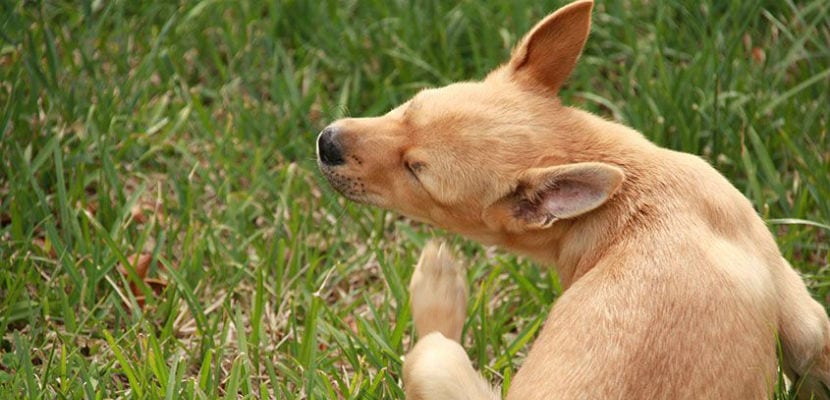
The snout It is one of the most useful areas of the dog's anatomy, given its great olfactory capacity. This also makes it one of its most delicate and sensitive parts; in addition, it is highly exposed to external factors. All this makes it vulnerable to certain problems, such as skin irritations or allergies. The dog usually tries to calm these discomforts by constantly scratching.
One of the most frequent causes of this problem are the alergies, common especially in spring. Although they usually cause itching in the rest of the body, it is common for them to start first on the snout. Pollen allergy, for example, gives rise to a strong nasal congestion, which directly affects this area, accompanied by sneezing and conjunctivitis, among other symptoms. Something similar occurs with allergy to dust and other elements, which can also cause inflammation and redness on the nose and lips.
We can also find the origin of these itches in the insect attackOne of the most dangerous is the pine processionary caterpillars. If we notice that our dog suffers from strong itching in the muzzle, we will have to go quickly to the vet, since it is likely that it has been in contact with this dangerous insect.
Another common reason is the introduction of foreign bodies in the nostrils, like little spikes. If we do not remedy this problem quickly, it can lead to a dangerous infection.
On the other hand, the dog may suffer a dermatological problem that causes the appearance of itching in the muzzle. An example are the pemphigus and pemphigoids, an immune disorder that causes the animal's body to attack itself, causing, among other symptoms, itching in the muzzle, flaking and blisters in the area.
Another possibility is that the dog suffers some alteration in the nasal passages, whose symptoms can become much more serious: bleeding, carcinomas, deformity in the muzzle, etc. It involves a significant bone deformation that can lead to serious problems.
In the event of any of these signs, we must go immediately to a trusted veterinary clinic, since the itching in the muzzle can lead to inflammation of the nasal passages, leading to the asphyxia of the animal.